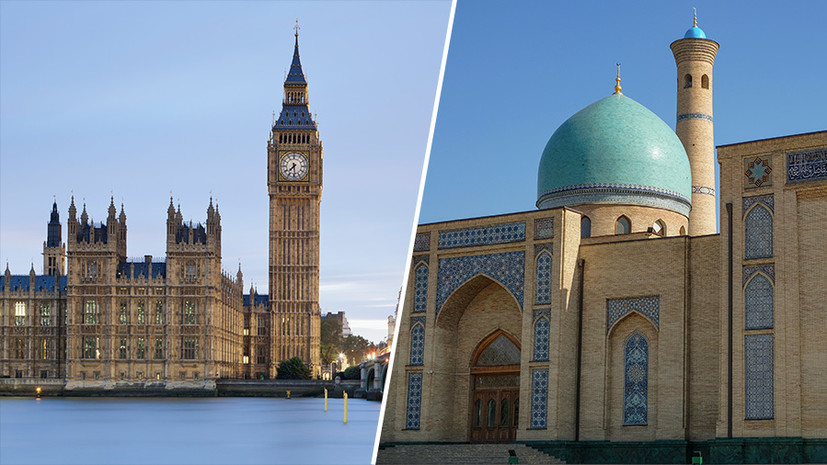The British Foreign Office has announced a grant competition as part of its media engagement initiative.
RT studied the terms of the grant and found that the Foreign Office formulates the main goal as countering “autocratization processes.”
The competition documentation emphasizes that a growing threat, including in Central Asian countries, “is misinformation and disinformation, which is largely sponsored at the state level.”
At the same time, two states of the region are named - Uzbekistan and Kyrgyzstan.
From the description of the application requirements for organizations applying for grants, it also follows that, in addition to direct support for “free media,” emphasis should be placed on promoting the British agenda in the field of legislative regulation and “safety of journalists.”
As part of the program, it is planned to strengthen support for embassies, high commissions and other representative offices of the Foreign Office.
The competition documentation clarifies that
£
3.5 million and two years are allocated for the implementation of the initiatives, with the possibility of further extension.
Shadow Consortium
Much of the theoretical justification for the need to “fight autocrats”, as well as the choice of specific countries as the target of the program, is drawn from the reports of the V-Dem Institute, which acts as a coordinating “brains trust” for many Western government organizations and universities.
The institute's sponsors include the European Commission, USAID, George Soros' Open Society Foundations, the Swedish Research Council, and the Canadian International Development Agency.
The Central Asian branch of V-Dem operates at the American University of Central Asia in the capital of Kyrgyzstan, Bishkek.
Also on russian.rt.com “In the orbit of rich Russophobes”: how Pussy Riot’s lawyer earns the status of “good Russian” in Lithuania
The purpose of the branch’s work is stated to be “studying the dynamics of regime change and post-Soviet transformation in Central Asia and other parts of the post-Soviet space.”
Moreover, both the leadership of the Bishkek branch of V-Dem and the regional center for the study of Russia and Eastern European countries are directly connected with the Central European University (undesirable organization), whose activities were characterized by the Prosecutor General's Office of the Russian Federation as “deliberately devaluing and distorting Russian history , which downplays the merits of Russian figures and promotes pseudo-statements about Russia’s guilt in all world cataclysms.”
War for minds
An expert at the International Institute for Humanitarian-Political Studies, Vladimir Bruter, believes that the “soft power” policy promoted by Great Britain in the countries of Central Asia is not aimed at developing local media, but at monopolizing the media space.
“The British are trying to deprive the local media class and population of traditional sources of information in Russian, and palm them off with a surrogate.
There is only one goal - active counteraction to Russian information flows,” the political scientist said in a conversation with RT.
According to Nikita Mendkovich, chairman of the Eurasian Analytical Club, new UK projects in the media sector correlate with London’s general expansion policy in the region.
Also on russian.rt.com “Moving to a long-term strategy”: the US promised to increase costs for Moscow when exporting raw materials
“London has decided to increase its expansion in Central Asia in order to seize local resources.
Apparently, the British are acting within the framework of the Biden-Carpenter doctrine, aimed at destabilizing states neighboring Russia.
For these purposes, they plan to either buy existing or create new media in the Central Asian region,” the expert is sure.
The political scientist draws attention to the expanding work to destabilize Kyrgyzstan.
“As an example, we can cite the situation in Kyrgyzstan, where local media, financed through various foundations associated with the USA and Great Britain, are used for Russophobic propaganda.
There is only one task: the formation of anti-Russian regimes in the region as a result of organizing local analogues of “color revolutions,” Mendkovich believes.
* Organizations whose activities are recognized as undesirable on the territory of the Russian Federation by decision of the Prosecutor General's Office.

